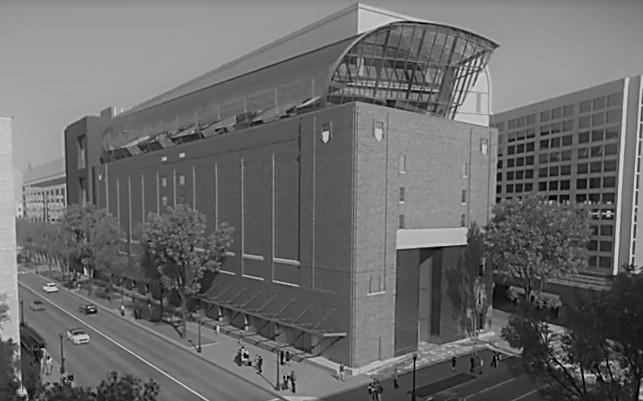Ancient scripts and rocker Elvis Presley’s Bible will be on display at the $500 million Museum of the Bible, which opens this weekend in Washington after questions about the origin of some of its artifacts and its portrayal of the holy book.
Museum backers say its collections will offer a scholarly, nonsectarian view of one of history’s most-debated sacred writings, following revision of the initial mission statement that called for it to “bring to life the living word of God.”
“It’s not about espousing our faith,” Steve Green, a Southern Baptist who is the museum board’s chairman and president of the Hobby Lobby craft store chain, told reporters this week. “We just want to present the facts and let visitors decide.”
Visitors at the Saturday opening will enter through 37-foot-high (11.2-meter-high) brass gates etched with the first 80 lines of the Book of Genesis from the Bible’s first mechanical printing in the 15th century.
The eight-level museum in a prime tourist spot two blocks off the National Mall features the world’s biggest private collection of Torahs, as well as walk-through scenes of biblical stories such as Noah’s flood and a re-creation of a Middle Eastern village at the time of Jesus.
Its 430,000 square feet (40,000 square meters) include a digital guide and an interactive display that answer questions on the Bible. A rooftop garden has plants mentioned in the Bible, and museum admission is free.
Joel Baden, a Yale Divinity School professor and co-author of “Bible Nation,” a book on Hobby Lobby, said the museum did not reflect the full complexity of the Bible.
“They are telling a story of the Bible that is a particularly American Protestant one,” he said by telephone, noting less or little attention was paid to Roman Catholics, Jews, Muslims and Mormons.
Conservatives cheered Hobby Lobby in 2014 when the Supreme Court ruled that the Oklahoma-based retailer and Conestoga Wood Specialties could refuse to cover contraceptives in employees’ health insurance due to the owners’ religious beliefs.
Hobby Lobby again drew headlines in July, when it agreed to pay $3 million and forfeit smuggled Middle Eastern artifacts obtained for the museum under a settlement with the U.S. Justice Department.
Green said the legal trouble involved his family and not the museum itself, and that questions had not been raised about where items the Greens had donated came from.
“There are items that we will explain ‘here is what our provenance is,’ and if there are holes, we’ll let people know,” he said.






